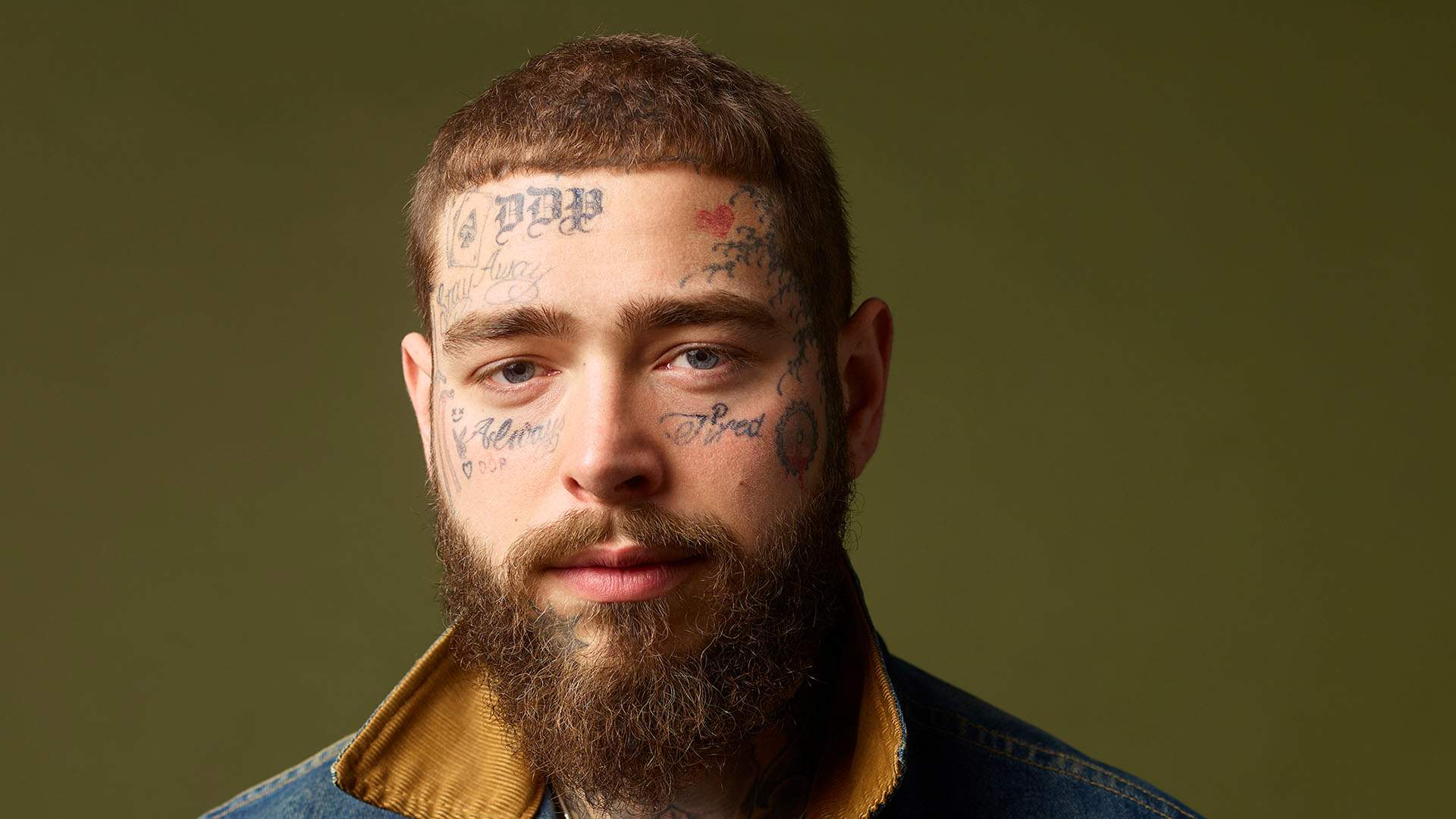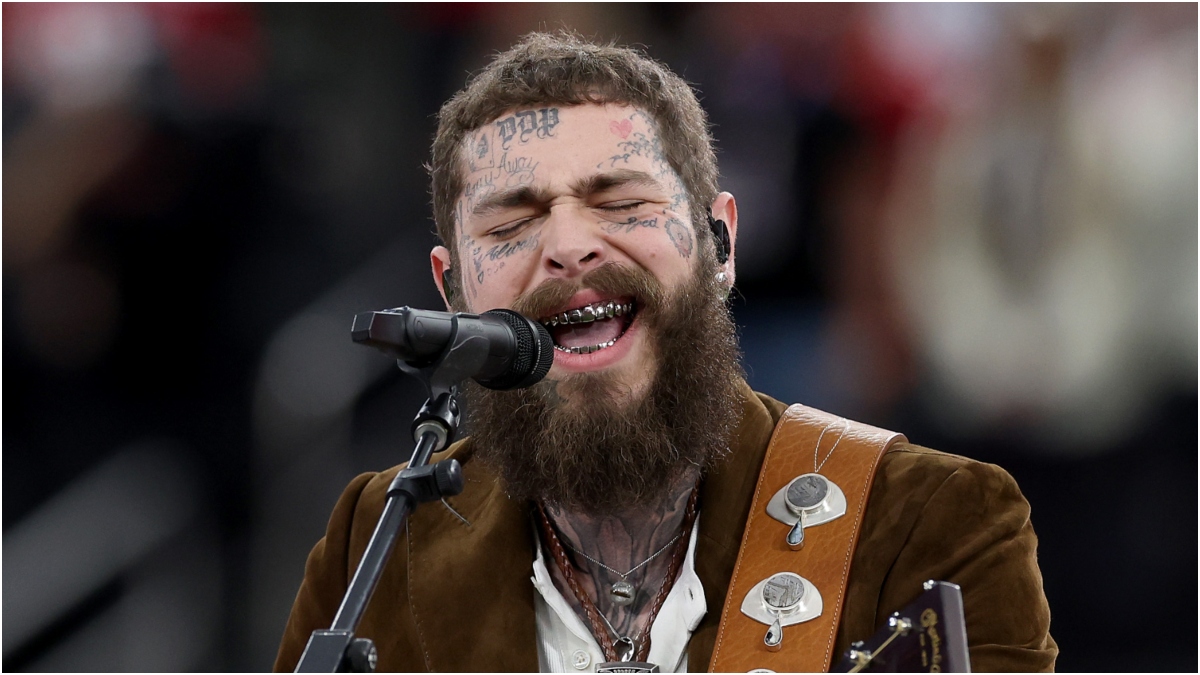Post Malone & Trump: Did He Vote? + Celebrity Endorsements
Did Post Malone, the genre-bending artist who has captivated millions with his unique blend of hip-hop, pop, and rock, cast his vote for Donald Trump? This question has become a subject of intense speculation and debate, reflecting the growing intersection of celebrity culture and political affiliation in the modern age.
The query regarding Post Malone's political leanings transcends mere curiosity. It highlights the broader trend of public figures wielding significant influence, especially among younger demographics, a demographic thats often critical in shaping electoral outcomes. The artist's words, actions, and even silences are now meticulously scrutinized, with fans and political observers alike attempting to decipher his stance on the nation's most pressing issues. This scrutiny underscores a fundamental shift in how we consume information and perceive the roles of celebrities in our society. It is increasingly difficult to separate the artist from their art, and the political views of celebrities have become a common conversation topic.
| Bio Data | Details |
|---|---|
| Full Name | Austin Richard Post |
| Born | July 4, 1995 (age 28 years), Syracuse, New York, USA |
| Occupation | Singer, Rapper, Songwriter, Record Producer, Guitarist |
| Years active | 2013present |
| Genres | Hip hop, pop, R&B, trap, rock |
| Instruments | Vocals, guitar |
| Associated acts | 21 Savage, Young Thug, Swae Lee, Justin Bieber, Quavo |
| Labels | Republic |
| Net Worth | $60 million |
| Notable Albums | Stoney (2016), Beerbongs & Bentleys (2018), Hollywood's Bleeding (2019), Twelve Carat Toothache (2022) |
Reference: AllMusic
The rumors surrounding Post Malones potential support for Donald Trump gained considerable momentum during the 2020 election cycle. While the artist has not publicly endorsed any political candidate, certain observations and comments have fueled speculation. The music industry, like any large sector, contains a multitude of diverse views, and it is often challenging to determine where an individual stands definitively.
In the multifaceted world of entertainment, the question of whether Post Malone voted for Donald Trump has spurred debate. His public statements, however limited, combined with the broader context of celebrity political endorsements, offer some interesting clues. The potential for younger audiences to participate in elections is something that always hangs in the background when discussing the political views of an artist.
The influence of Post Malone on his vast fan base is undeniable. He is one of the most influential musicians of our time. It is therefore natural that his political preferences attract attention. His music resonates deeply with a generation, creating a direct line of communication that many public figures would covet. Such a connection can be a powerful tool, potentially motivating younger audiences to participate in elections and influencing their political leanings.
The 2020 election saw numerous celebrities openly endorse candidates. In contrast, others chose to remain neutral, their silence also speaking volumes to some. While it is true that the American voting system is open to criticisms, the participation of the public is fundamental in a democracy. The failures, as Post Malone mentions, in the American voting system cannot be ignored, and are a point of continuous debate.
During an interview on the New York radio station Power 105's "The Breakfast Club," Post Malone discussed his views on the voting system, specifically highlighting some of its shortcomings. His comments have often been interpreted as indicative of his broader skepticism toward the political process, rather than an outright endorsement of any candidate.
However, this stance doesnt definitively answer the question of whether he voted for Trump. His past comments about the electoral college and his feeling that neither candidate was fit for office further complicate matters. Such statements reveal a nuanced perspective, one that prioritizes unity and critical thinking above strict partisan alignments. He has mentioned that "our votes are suggestions to the electoral college."
Despite not casting a ballot in past elections, and expressing reservations about the candidates at the time, Post Malone would, however, consider performing at a potential Trump inauguration. His willingness to perform, however, seems to be heavily contingent on the financial terms. The phrase "how much money is it?" suggests a pragmatic approach to such opportunities, placing professional considerations at the forefront.
The issue of celebrity political involvement, and in this case Post Malones involvement, touches upon a broader societal curiosity. The intersection of entertainment and politics continues to evolve, as does the way we understand and process information. The fact that this query is even a topic of discussion demonstrates how society's views on political figures are evolving.
The 2024 election cycle is drawing closer, and the question of who Post Malone might support continues to intrigue fans and political observers. The media landscape now, which includes internet memes and movies, plays a part in predicting and influencing future elections. The entertainment world is vast, and its influence is always growing.
The rise of celebrity involvement in politics is undeniable, and the public's desire to know where their favorite stars stand is growing. We often see famous faces, like those planning to vote for Donald Trump, who add fuel to the discussion.
This is a complex issue, and one that is made all the more so by the lack of definitive answers. The fact that the question persists speaks to the power that celebrities wield and the increasingly blurred lines between entertainment and politics. The artist's stance, or lack thereof, reveals much about the complex tapestry of the modern age.
Ultimately, the mystery surrounding Post Malones vote may never be completely solved, but this in itself speaks volumes. It reflects a deeper societal curiosity, a desire to understand the forces shaping our world, and the role that both art and the artists themselves have in that process. What we can conclude is that the topic of celebrity influence in politics is here to stay and will continue to evolve with each election cycle.


